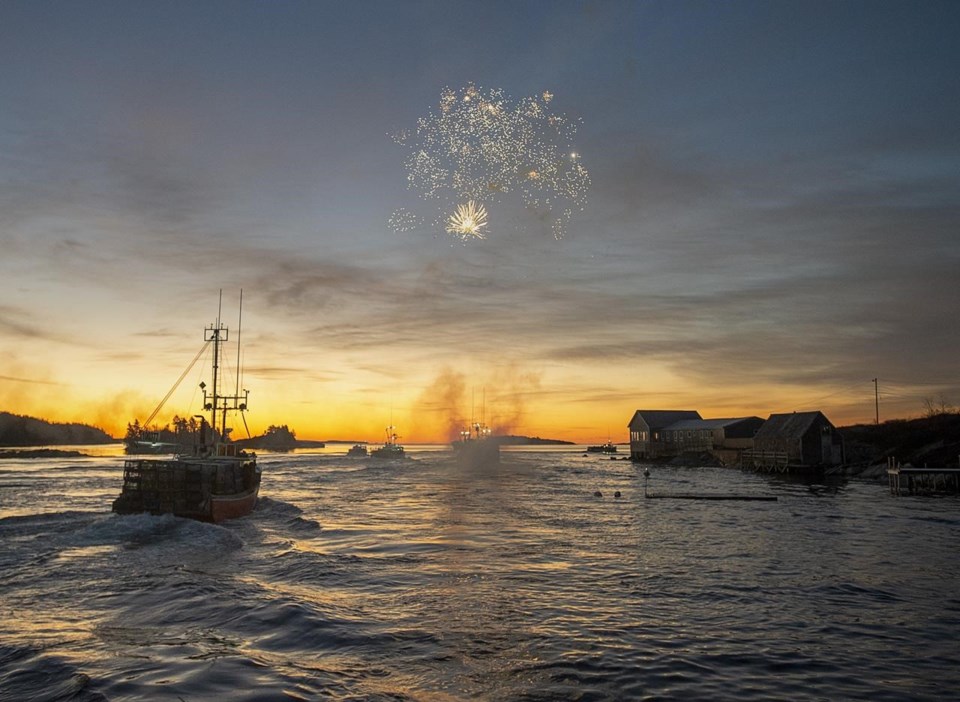HALIFAX — Frustration is mounting as some fishermen and politicians in Nova Scotia speak out about the scale of unauthorized lobster fishing in the southwestern part of the province.
In an interview Tuesday, Colin Sproul, of the Unified Fisheries Conservation Alliance, called the current situation in St. Marys Bay, near Digby, N.S., “outrageous” and dismissed reports of enforcement by federal fishery officials as “patently untrue.”
“There is an industrial level commercial fishery taking place in St. Marys Bay,” said Sproul, although he wouldn’t say for certain by whom.
Sproul didn’t mince words, however, about what he said was a lack of enforcement by the federal Department of Fisheries and Oceans.
“The real question here is, does the Canadian government have the intent to enforce existing Canadian fishery policy and law,” he asked. “The view in fishing and coastal communities in Nova Scotia is, absolutely not.”
St. Marys Bay was the scene of confrontation in September 2020 when the Sipekne'katik First Nation started a pioneering self-regulated lobster fishery that ran outside the commercial season. Heightened tensions between Indigenous and non-Indigenous fishers resulted in confrontations on the water and riots at two lobster pounds, one of which was later burned down in a deliberately set fire.
Fishery officials with Sipekne'katik First Nation could not be reached for comment Tuesday, but they have long asserted their treaty right to make a moderate living from fishing.
Sipekne'katik filed a lawsuit against Fisheries and Oceans Canada on July 21 after two band members had their traps confiscated by a fishery officer at the wharf in Saulnierville, N.S., on July 18.
According to the notice of action filed in Nova Scotia Supreme Court, the department’s action prevented the band members from participating in a livelihood fishery.
The defendant's actions amount to "an infringement of an Aboriginal right to participate in the harvest and to be in possession of lobster for sale,” the document states.
The commercial lobster fishing season in southwestern Nova Scotia closed on May 31. In a social media post on Monday, the Department of Fisheries and Oceans said its officers had seized 321 lobster traps in the area since July 17 for non-compliance with regulations. The retrieved lobster had been returned live to the ocean, it said.
“Enforcement activity is not always visible,” the department said in its post to X, the social media platform formerly known as Twitter. “Fishery officers use a range of monitoring and compliance tactics on and off the water. Anyone fishing without authorization is subject to enforcement action.”
The department was not immediately available for comment on Tuesday.
Last week, local Conservative MPs Chris d’Entremont and Rick Perkins wrote to federal Fisheries Minister Diane Lebouthillier saying urgent action is needed to combat illegal poaching.
“Numerous unlicensed boats are currently involved in poaching lobster at levels not seen since the crisis of 2020,” the MPs wrote. “Once again, the DFO appears to be merely 'observing' rather than effectively enforcing the law against poachers.”
The MPs noted that licence plates from New Brunswick, Quebec and the northeastern United States have been seen at local wharfs, but the letter did not say who was doing the fishing.
“With as much as 100 pounds of lobster per pot being pulled from the warm waters daily, the delicate reproduction cycle of these creatures faces an imminent threat,” they said.
Nova Scotia’s Opposition Liberals waded into the fray Tuesday, calling on the province to institute a zero-tolerance policy for illegal commercial purchasing of lobster. The provincial government is responsible for licensing the sale of lobster.
Sproul also said the province needs to move to eliminate the market.
“Certainly the province has a role and as of late the government has abdicated that role,” he said.
The Nova Scotia Department of Fisheries did not immediately respond to a request for comment.
This report by The Canadian Press was first published Aug. 29, 2023.
Keith Doucette, The Canadian Press




